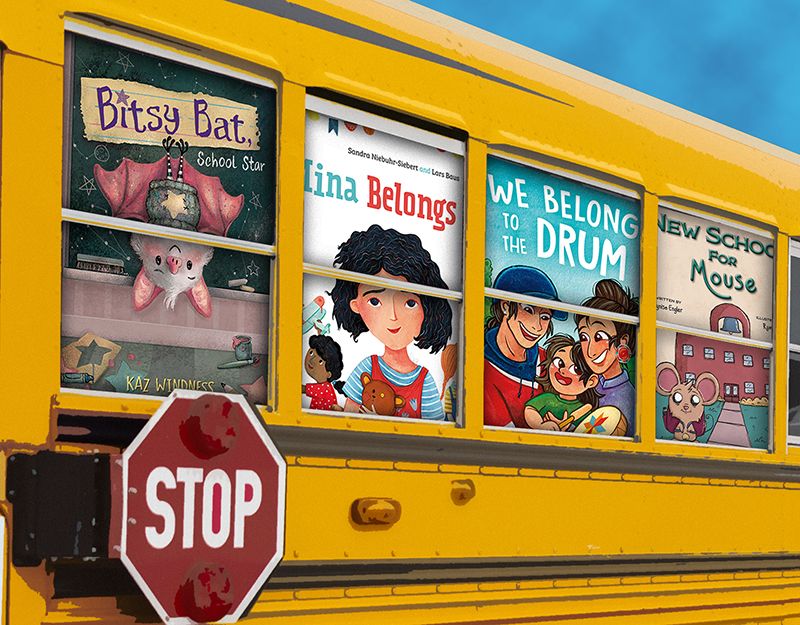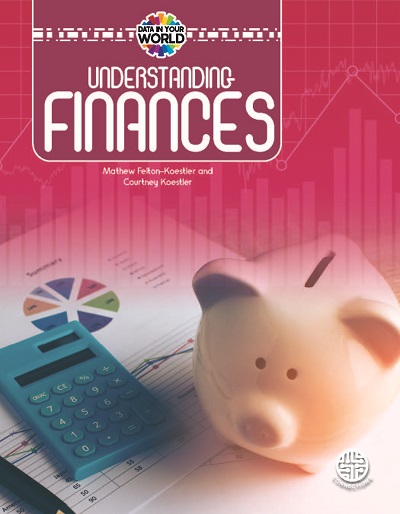To MLS or Not to MLS
 I’ve been working in public libraries for two years now, and I’ve noticed this discussion arise with great regularity both online and IRL. When I worked in school libraries, it was never a discussion. In the state where I worked an MLS was a requirement to be hired as a school library media specialist. We all had the degree, most of us from the same three (then 4) schools that were available in the state. And I will (braggingly) say that we all had fairly positive experiences with our degrees, as far as I know. I never heard anyone say that they felt their degree program was a waste of time, or that they could be doing their job without it. Maybe it was just a perception on my part, or maybe it was just peer pressure? Or maybe it’s the fact that there’s no one there to train you – you have to hit the ground running.
I’ve been working in public libraries for two years now, and I’ve noticed this discussion arise with great regularity both online and IRL. When I worked in school libraries, it was never a discussion. In the state where I worked an MLS was a requirement to be hired as a school library media specialist. We all had the degree, most of us from the same three (then 4) schools that were available in the state. And I will (braggingly) say that we all had fairly positive experiences with our degrees, as far as I know. I never heard anyone say that they felt their degree program was a waste of time, or that they could be doing their job without it. Maybe it was just a perception on my part, or maybe it was just peer pressure? Or maybe it’s the fact that there’s no one there to train you – you have to hit the ground running.
And just to reveal my prejudice in the debate even more, I didn’t work in libraries before I got my degree. When I went to library school, I wasn’t entirely sure what type of library I wanted to work in – all possibilities were open to me. What I learned in library school has served me really well over the years, and I sincerely enjoyed the experience. In fact, library school was the first time in my academic career where I felt what I was learning was a perfect marriage of theory and practice that prepared me well for the profession.
ADVERTISEMENT
ADVERTISEMENT
Since I’ve been in the public library arena, however, I’ve heard a number of people disparage the degree as unnecessary. And perhaps it is for them? Maybe their library system did such an amazing job of training them that it completely obviated the need for a masters degree? Or maybe that, combined with say 10 years of on the job experience? I just don’t know.
And I wonder if this is a common discussion in other professions where you might need a specific degree to ‘get ahead.’ Does the business community, for instance, have similar discussions surrounding the value of the MBA degree?
Well, dear readers, what do you think? Did you get good value from your MLS, or was it a waste of time? Or do you have mixed feelings? Let me know in the comments.
Filed under: Uncategorized
About Robin Willis
After working in middle school libraries for over 20 years, Robin Willis now works in a public library system in Maryland.
ADVERTISEMENT
ADVERTISEMENT
SLJ Blog Network
The Moral Dilemma of THE MONSTER AT THE END OF THIS BOOK
Cover Reveal and Q&A: The One and Only Googoosh with Azadeh Westergaard
K is in Trouble | Review
Fighting Public School Book Bans with the Civil Rights Act
ADVERTISEMENT








I have mixed feelings about the MLS. I started working in my library system in 2006 as a library page and then as a library assistant starting in 2008. During that time, the great recession hit which reduced our staff from 12 to 7, so I ended up taking on a lot of programming and other duties that are sometimes considered the purview of only MLS staff in other library systems. Honestly, I went to grad school in 2012 because I wanted more respect and more money than my library assistant status gave me (both of which I feel like I achieved since grad school).
I found my time in grad school to be somewhat helpful, but there was a lot of stuff that we covered that I had already learned/been exposed to in my job (reference, programming, readers advisory, teaching classes) and those classes were not as helpful to me as they probably would have been if I had no library experience. I tried to structure my electives around things that I was interested in that I hadn’t done yet in my library career: cataloging, web design, etc. Unfortunately, the way my career path went neither of those skills are useful in my daily work.
My favorite class and the one that has been most useful to me on a daily basis was my management class. I currently work as a branch manager and I would not have wanted to be in this or any other supervisor position without that management class.
So overall, I didn’t find every class I took useful and many things I picked up better through on-the-job training than classroom training. But, the biggest thing I took away from grad school were the relationships that I was able to create with other librarians in the state. At the time I went to grad school there were only 3 ALA-accredited MLIS programs in the state (there are now 4), and only 2 of those offered completely online degrees (I guess online vs. in-person argument will have to wait for another day, but it was the only way I could get my degree and still work and be able to eat/live). This has made it easy to network with other librarians and that relationship building has been the most important thing I got to take away from my grad school days.
Christie,
I felt same way with you.
I started as a page, a circulation specialist, and became an associate librarian
I have A.A.S in Early childhood Education, B.A in international business. So what I learned about children’s program/development, budgeting, managements through MLS wasn’t depth enough comparison to what I learned from undergrad degree. I guess that’s because librarianship requires so many skills and roles, so generally, MLS programs would not cover wide spectrum of librarianship.
Most helpful class for me was librarian ethic class. It was the foundation of what I do in daily life. I learned and thought a lot of what is real librarianship like. I was excited to learn metadata and cataloging which is very new to me but as children’s librarian, I do not have chance to use those knowledge much.
So I would like to say that I learned most practical skills through work.
I thought, especially working public libraries requires more job experience than degree.
Many of my cohorts from school were divide two groups: no library experience at all but want to be a librarian vs. they need MLS for moving up in their work place, including myself. (better position and pay).
Many of my current coworkers face similar dilemma. They already do sort of librarian level of work, such as programming, cataloging, reference work etc, but they could not go anywhere without degree.
I think experience is 9/10s of librarianship. (coming from someone with an MLIS) However i feel like certain aspects of a degree are helpful in the field. I once worked under a children’s department head who did not have a degree, but had worked in her position since the eighties. She was very biased, and structured the books in the children’s room in such a way that minimized parents complaints about material they didn’t want to read to their kids before bedtime. So she put ALL the books with an LGBT character or themes in the “parenting” section next to the books on death, and parents in jail, and potty training. Off in a corner where no one would go to look for them, rather than mixed in with the rest of the picture books. Just because she didn’t want parents complaining that they were reading the book at bedtime and then OH MY GOD THEY HAD TO EXPLAIN STUFF. I could see putting books centered around death in a special section where parents know what they’re getting into, but a picture book where a kid happens to have two moms? It drove me nuts. I kept feeling like if she had had a degree, she would have taken classes like i did that really hammered home what censorship is. She is a very lovely person and not anti LGBT at all, she just wanted to make everything more comfortable for herself.
I was a paraprofessional at my public library for 9 years when I finally decided to get my MLIS. I’m in my mid-40s and have 2 teens who will be off to college themselves soon, so this was no easy decision for me. My library allows LTAs to do programming, collection development, and more, so why did I want my degree? I thought I wanted to be a Teen Librarian – I spent years supporting our Teen Librarian doing school outreach and programming. But if I wanted to be the one planning and trying new things, I felt like I needed the degree. A year into my program, and I was suddenly doubting my plan. Sounds like a bad thing, right? On the contrary. I was learning about underserved communities, veterans, homeless, refugees, inmates. Suddenly I knew what kind of librarian I wanted to be. I realized it wasn’t just the age group that interested me (teens), but the work I was doing — outreach. I began to understand WHY libraries need to serve everyone. I mean I inherently knew this before, but my day to day work as an LTA didn’t allow me to explore this.
I also chose classes that would provide me with experience that I couldn’t get as an LTA, such as management, instruction, genealogy. I did my practicum at a library that allowed me to work in a department different than my everday work and provided me with even more specialized experience. Even my youth nonfiction class taught me how to evaluate titles in a way that I didn’t before. Could I have done these things on my own? Maybe, if I carved out the time, which is not easy when you work and have a family. Would I have gotten the expert guidance and discussion and social aspect of it if I explored it on my own? Probably not.
I’m 46 and graduated with my MLIS this past May and I haven’t regretted a second of it. It’s made my work richer and more meaningful. It made me more confident as a person. My family saw me work hard and achieve something extraordinary. I’m more passionate than ever about library services for underserved populations. This fall, I’ll be contacting our local county jail and homeless shelters to see how we can partner with them for programming and outreach. Getting my MLIS was definitely the right choice for me.
I love this discussion – keep going everyone.
I was placed in my campus library as my work study assignment during my undergrad and fell in love with the work. I started my MLIS program immediately after graduation. For financial reasons, I only took one class a semester so I knew the program was going to take 6 years. I was hired as a library associate substitute during my first semester, in large part I think because of what I was learning in that class about reference interviews and other basic library principles. I worked in that same system as a sub, a part-time LA in the adult department, and then full-time in the children’s department until a few weeks before graduating, almost 6 years later. That system made no distinction between LA’s who had a degree and those who did not. I couldn’t get promoted without a degree, or at least being close to finishing one, but I was doing everything an LA with a degree was doing. I left that system just before completing my MLIS because a position became available in a neighboring county that would pay me more for having the degree. So far, I’m not doing anything that I wouldn’t have been doing in my old system but getting paid more for it anyway.
I did learn some valuable things from my classes, especially my emerging technology class and my capstone research project, but I have learned just as much from trainings I have taken through work. I really loved my job as a children’s LA and could easily have been happy and financially comfortable (since I would have saved all the money I spent on the degree) doing that my entire career if I hadn’t already been most of the way through my degree when that fact dawned on me. If I’d made it that far in my career without being in a degree program, I’m not convinced 5+-years-of-experience-me would make the decision to start one.
I have to agree with the mixed feelings. I got my MLS after completing an M.Ed in curriculum and instruction and working in an academic library. So much of what I was taught in class was redundant because I was already doing the work and had the education background. However, I think that in my case I got to do the work as a tech because I worked for a small institution and had a director that saw my value. I was allowed to create and put new policies and programs into place long before I had my degree. I was already managing staff. My current position is in acquisitions where every class I ever had on literature and its use in the classroom is put to use. Do I use every class I had to take? No. I learned far more about searching and reference interviews by doing rather than talking theory and using made up scenarios. However, I would not have any respect as a professional at a college without the degree. You have to have the faculty’s respect to be effective.
I value my MLS especially as someone who came into libraries with a narrow mindset. I loved books and kids so school librarianship was a calling. I learned quickly that librarianship was more and embraced it. I had to have an MLS to consider teaching in my home state. In my current state, most librarians only need to complete a state certification program which is offered to both school and public librarians. I feel that perhaps to be a school librarian or academic librarian or public library director (or name similar library jobs here) that the degree would be beneficial. However, I know some great school librarians, public library directors, and public librarians who are quite skilled without the degree. I clearly don’t know which side I am supporting but I value my degree and I know that my job application jumped to the top of the applicant pool because of it.
This thread is really encouraging, because I’ve been debating going back to finish my BA and pick up a MLIS. I’m currently sitting at a library aide (entry level position) salary with two associate’s degrees, a ton of credits towards a BA/BS, seven years experience, and currently acting as both Teen Services Librarian and acquisitions consultant for LGBT+ resources.
I’ve always been proud of how well my breadth of knowledge approach to education has served me in the library; my AS is social sciences, my AA is graphics design, and my BA work is in medieval studies (literature) with minors in applied psychology in education and philosophy. So seeing how people here still find use for their depth of knowledge degree (which is the intimidating part for me) and how their field experience applied to the degree programs is really helpful. Thank you everyone!
I really appreciate this discussion because I am currently debating about a degree. I have a MS Ed already and after 15 years of working in education I took a break to be with my very sick newborn. When I was ready to head back to work I didn’t want to teach so my local youth librarian hired me as a page, then Assistant and recently we created a new “professional” librarian in the YS dept. (btw that while I understand the Intent, that phrase can feel extremely insulting to those who behave professionally and have worked hard to self- educate as AMAZINGLY gifted librarian)
While I feel like my education background has served me well and have learned a lot on the job to be successful, I have always been someone who enjoys the bigger picture understanding of “why” we do things as much as the “how”.
Since I was bumped into the full time librarian position, I am debating whether a second masters degree is a good use of my family & free time, and money…
Our state has a paracertification program but that seems less helpful. Interestingly, I’m also looking into the education LMS supplemental courses to see if that could add content to my existing degree.
For the record, I know that early childhood has this debate (masters/no masters) a lot especially because the pay/degree cost ratio is why out of whack. My husband is a VP at a financial services firm and does not have an MBA but also thinks that if he applied for jobs cold, people might look at his resume sooner. So yes, this discussion definitely happens in other fields!
Thanks again for the post- I’ll keep following. Would love to hear about people’s experiences with online degrees…
I went back to school at age 43 for my MLS. It has been the best thing that ever happened to me. It’s given me the opportunity to do fascinating, interesting work while being financially self supporting.
I was born a librarian. I had my first library card before I could legibly write my name. I grew up prehistoric googling in various local libraries because, even at a young age, if I had a question I would go to great lengths to find an answer. Voracious reading was always my thing, as was trying to analyze situations for logical loopholes that might get me out of childhood responsibilities. By the time I was seven, I was so good at attempting parental negations that my dad thought I was headed for law school.
Unfortunately, life experiences like that don’t usually fly on a resume. . . So, I researched and debated my MLIS for years before I ultimately took the plunge. I’m stoked that I did. It was like bootcamp for my brain! My unrefined skills were constantly being leveled up by my professors, classes, peers, and internships. My librarian XP points skyrocketed in grad school and have continued to do so within my career.
I don’t believe holding an MLIS correlates to being an outstanding library employee. However, having one has supersized my abilities and opened up a world of amazing opportunities that I never would have encountered otherwise. Plus, it came with a license to ILL at no additional cost.
Before starting my library career path, I managed bookstores for 10 years. In the three years I earned my dual MS/MA, I worked in Acquisitions for an academic library as an Assistant. I am wrapping on my first year as a Children’s Librarian in a public library. I now know my years in bookstores provided me a general knowledge of what to expect in librarianship. But this was a VERY general knowledge. I hadn’t realized how little I actually understood about a medium I’d spent 10 years selling until I started my MLS. Earning my MLS gave me so much more insight into literacy, access, privilege, theory, community outreach, and a better understanding of how necessary a continuing education truly is.
The only thing I regret about my graduate years is the focal path I took for my dual degrees. Coming from retail, I didn’t quite understand who participated in outreach and how communities worked with public access sites. I’m grateful to have experience in both academic and public libraries, too. I know that public libraries are my last stand because academic libraries are too mission focused.
There is SO much to librarianship that we take for granted when we’re not in it. Learning the processes of the reference interview and Reader’s Advisory alone are worth the degree. Then there’s the continuing research into the harms of “leveling” children at their earliest literacy stages, how the horror genre can help develop compassion, the need for representative AND intersectional literature, and how a lack of access can cause a fracturing of identity when an individual can’t find themselves in literature.
I think that having my MLS has even helped me better handle recent publishing and government scandals and their effects on equal access. I have very emotional opinions about how children at the border are being mistreated and the government officials actively and passively responsible for these actions as well as the authors and illustrators that have had sexual allegations brought against them with the rise of the #MeToo movement. Take the recent incident in Richmond, VA and the verbal heckler towards a browsing patron. Even as a store manager, I would have been on the side of the verbal heckler due to my own views and probably would have refused service; much like the recent refusals by the Red Hen in Virginia. I also would have struggled over how to proceed when purchasing literature by those found guilty of sexual harassment and abuse.
With my MLS (including the theories, best practices, and research awarded to me through it), I am better equipped to handle these issues from a professional standpoint instead of an emotional one. I now know that equal access means equal access no matter my own biases. Community outreach means outreach to disenfranchised groups as well as those that I may not agree with. And yes. You can come across these lessons over time in the field without a degree. But having courses that directly dealt with these issues before I could do any damage through trial and error was worth it. I think that our profession deserves to be qualified by people with a passion for information and a degree that mediates that passion. I made a commitment to furthering education and campaigning for access when I started my MLS. What my MLS ultimately taught me was that my original idea of accessible information was just as limited as those on the opposite side of my ideals. This was an invaluable lesson to learn. It was humbling and made me a more thoughtful librarian.
Yes and no. You have to have an MLS to get a librarian position in most libraries in the US. Do you need it? Not really. There’s nothing I learned while obtaining my MLS that has really helped me either get a job or perform in a library job. But good luck becoming a librarian without that MLS.
I have my MLS, in addition to experience in both public and academic libraries, and have yet to obtain a full time position, much less a librarian level job. Depending on the area and system, you might have a difficult time getting a librarian level position even with a MLS. So a waste of time? In
the sense that you probably won’t use anything you learn getting your degree. But you won’t get a job without the degree. Welcome to America.